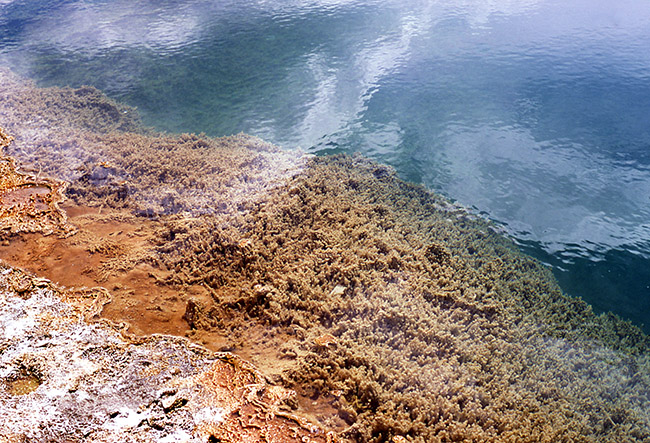Cal Poly Pomona included in $22 million federal grant

Algae in a pool at the West Thumb Geyser Basin in Yellowstone National Park. Photo by/Frank Walker
A research group headed by the University of California, Santa Barbara which includes Cal Poly Pomona and University of California, Riverside as collaborators was recently awarded a $22 million grant from the United States National Science Foundation to establish a biofoundry to study extremophiles, fungi, archaea, and bacteria that can live in extreme environments, according to a CPP news release.
An example of an extremophile is the tardigrade, also known as a water bear or moss piglet.
The funding will allow CPP to purchase a DNA sequencer for “genotyping and phenotyping of the microbes” and equipment that can check DNA quality before it is loaded into the sequencer known as a TapeStation, the news release read. “The research team will focus on three areas: bioremediation, biosynthesis, and rules of life from extreme examples. Rules of life refers to the knowledge that will be gained which can lead to advances in biotechnology.”
“As we learn more about these organisms, we are hopeful that we will be able to utilize products from the organisms in biotechnology or bioremediation,” Jamie Snyder, an associate professor of biological sciences at CPP and a co-principal investigator on the grant, wrote in a statement. “In addition, we may be able to genetically engineer these organisms to produce enzymes (or other useful products) for biotechnology.”
Cultivation of the extreme microbes will be done at UCSB and UCR while DNA sequencing will be done at CPP.
“The U.S. National Science Foundation has made five awards totaling $75 million to support the creation of five biofoundries that will spur innovation, provide tools and technologies to researchers nationwide, and help advance biology, biotechnology, and the broader science, technology, engineering and mathematics enterprise,” a news release from the NSF read. “NSF BioFoundries are integrated facilities that enable researchers to rapidly design, create, test and streamline the development of tools and products to accelerate research to advance the bioeconomy.”
Learn more at cpp.edu/news.







0 Comments